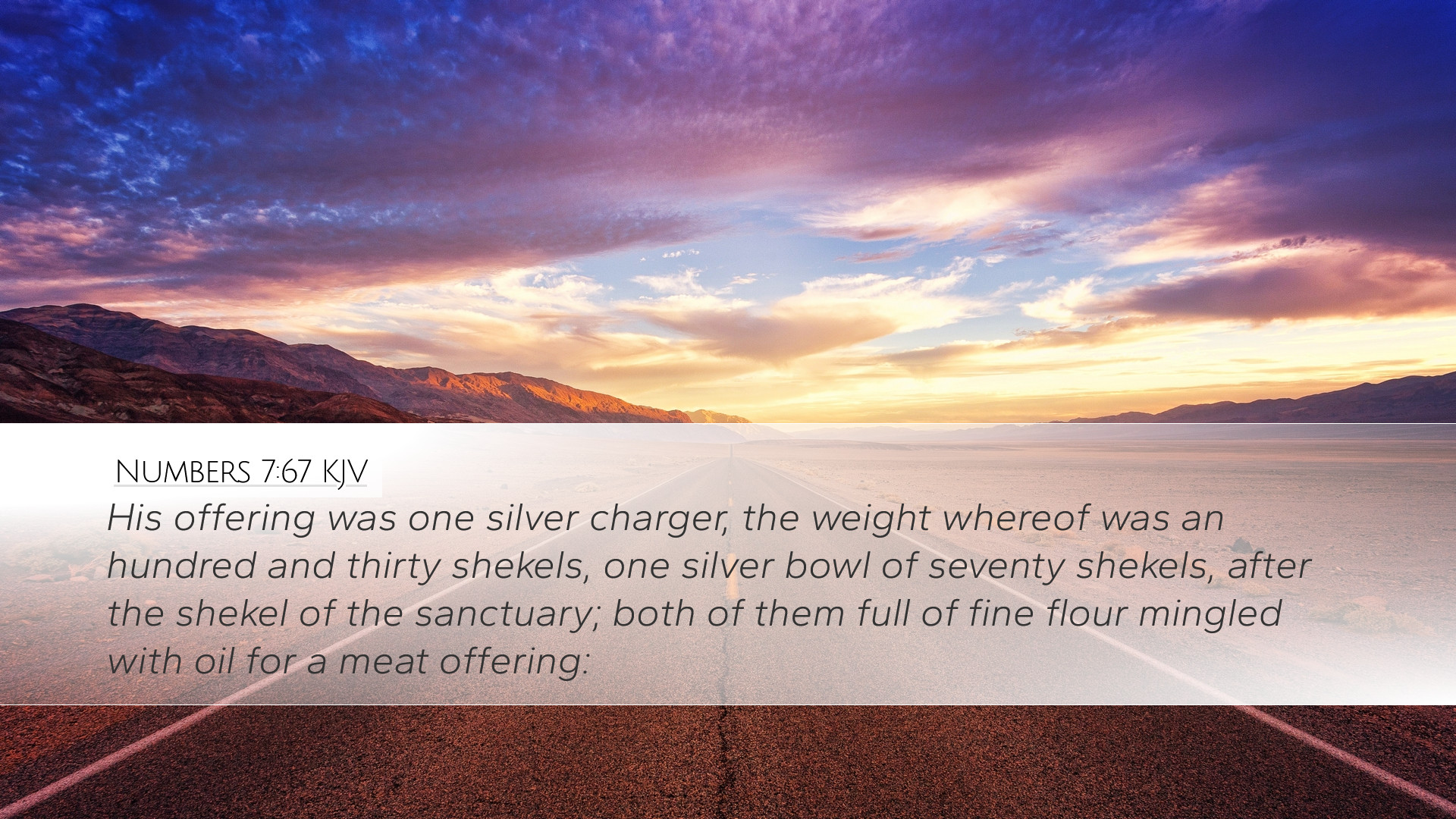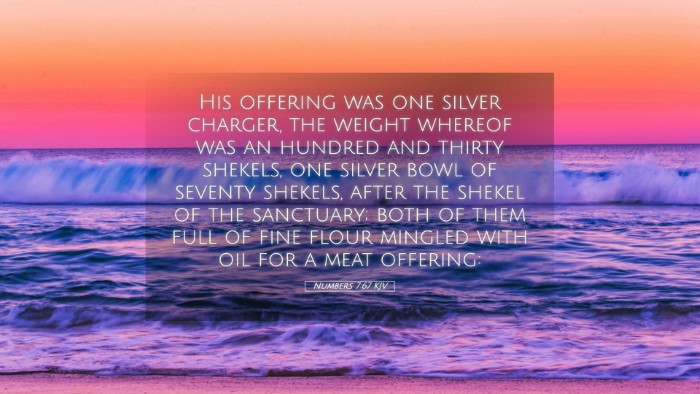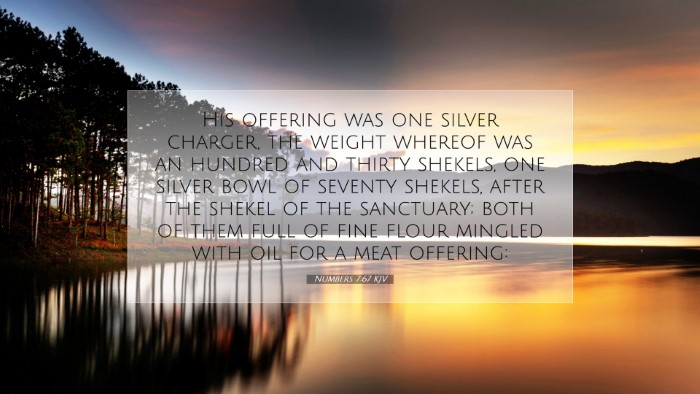Commentary on Numbers 7:67
Numbers 7:67 states: "His offering was one silver charger, the weight whereof was an hundred shekels, one silver bowl of seventy shekels, after the shekel of the sanctuary; both of them were full of fine flour mingled with oil for a meat offering."
Introduction
The context of Numbers chapter 7 revolves around the offerings made by the leaders of Israel during the dedication of the tabernacle. This chapter is unique in that it records the precise offerings from each tribe, emphasizing the communal dedication to God’s dwelling among His people.
Significance of Offerings
The offerings mentioned in this passage are significant both theologically and ceremonially. They represent the devotion and dedication of the leaders of Israel to God’s work and His presence among them.
The Nature of the Offerings
-
Silver Charger: The silver charger weighs one hundred shekels. This implies a level of value and commitment in the offering, symbolizing the leaders' dedication and reverence towards God.
-
Silver Bowl: Weighing seventy shekels, the bowl also signifies abundance and richness in service to God. The fine flour mixed with oil reflects the standard for acceptable offerings, emphasizing the quality expected of sacrifices to the Lord.
Theological Insights
This verse encapsulates several profound theological themes, which are echoed beautifully in commentaries by respected theologians.
The Holiness of Offerings
According to Matthew Henry, offerings in the Old Testament were not merely acts of giving; they represented the holiness and sanctity of what was dedicated to God. Each offering signifies a commitment to purity, as the materials used must be of the highest quality, just as leaders serving in God's name must maintain a standard of spiritual integrity.
Symbolism of Silver
Silver, in biblical texts, often symbolizes redemption. Albert Barnes notes that the use of silver in the offerings points to a recognition of God’s redeeming grace. The leaders present silver offerings as an acknowledgment of the salvific work of God in their lives and community.
Communal Dedication
Adam Clarke emphasizes the importance of communal participation in worship and dedication to God. The unified act of offering by the leaders portrays a collective responsibility and commitment of the nation to God’s service. This teaches modern congregations about the importance of collective worship and service.
Applications for Today
For pastors, students, and scholars, the themes presented in this verse resonate deeply in today's context. The concept of offering remains relevant, as it invites believers to reflect on their own sacrifices to God.
Quality of Worship
Just as the leaders of Israel were called to offer the best to God, contemporary worshippers are also challenged to bring their best, whether in talents, finances, or spiritual fervor. This call to excellence reflects an understanding of God's greatness.
Significance of Community
The unity of the leaders in their offering illustrates the power of community. In many ways, the church today is called to present a united front to offer collective worship to God, inspiring one another in faith and action.
Response to God's Provision
The offerings reflect a response to God's provision. Each act of giving and dedication serves as a reminder to believers about how they respond to the grace they have received. Pastors may emphasize stewardship and the act of giving as a form of worship and gratitude towards God.
Conclusion
Numbers 7:67 provides a rich tapestry to explore the nature of offerings, the importance of communal dedication, and the symbolism of the materials used in worship. Drawing from the insights of wise commentators, contemporary believers are urged to consider deeply their commitments to God, their communities, and their worship.


